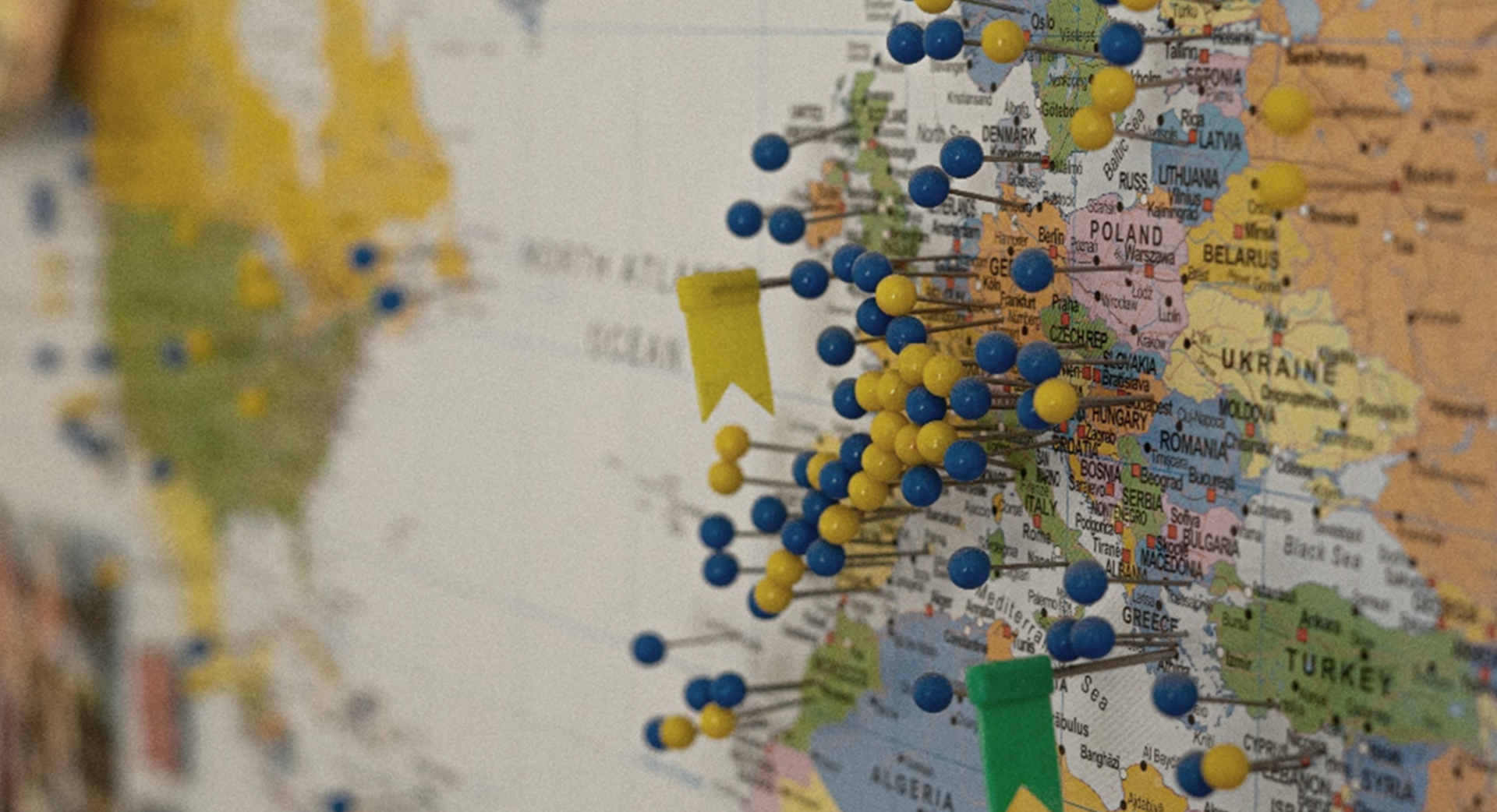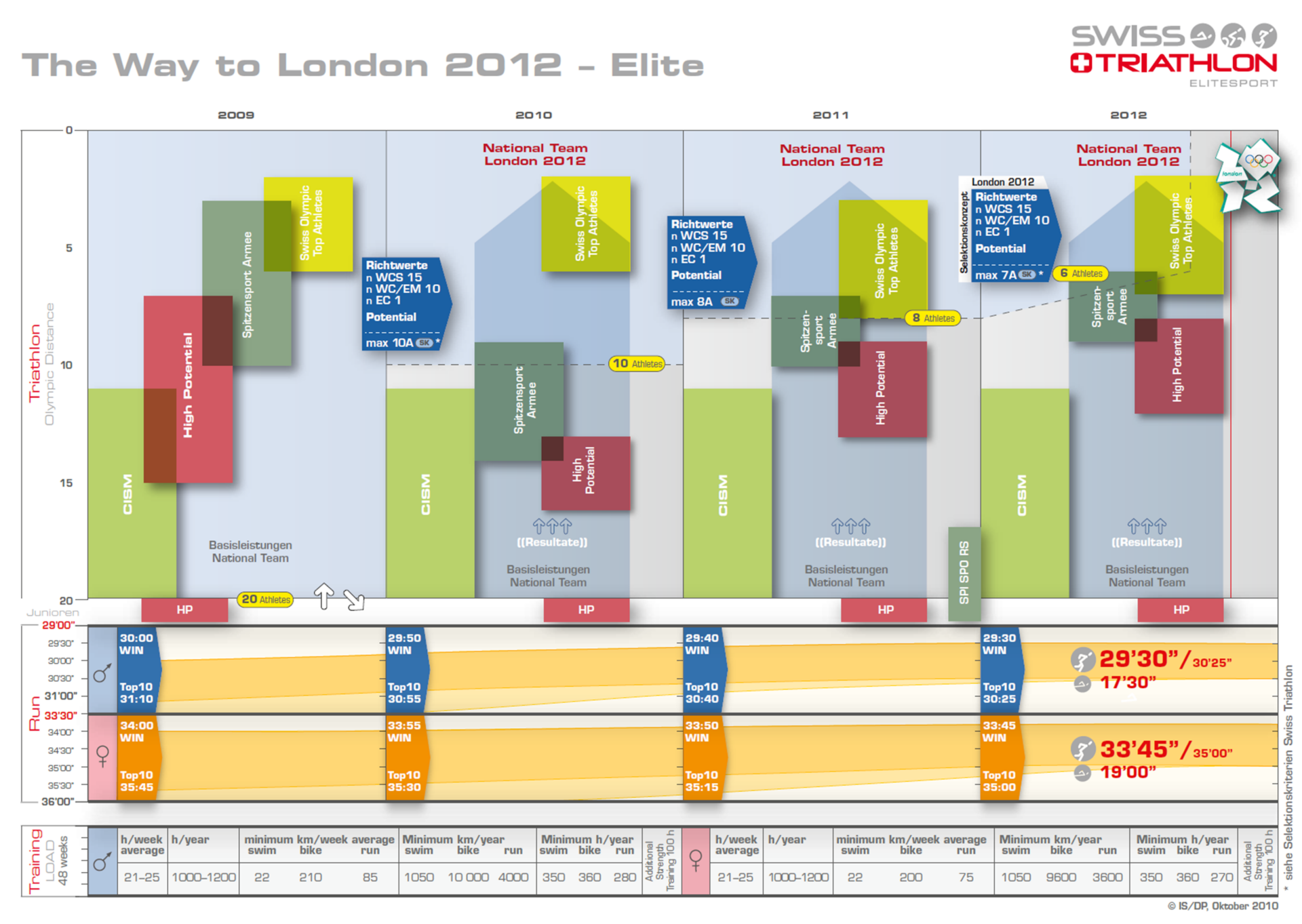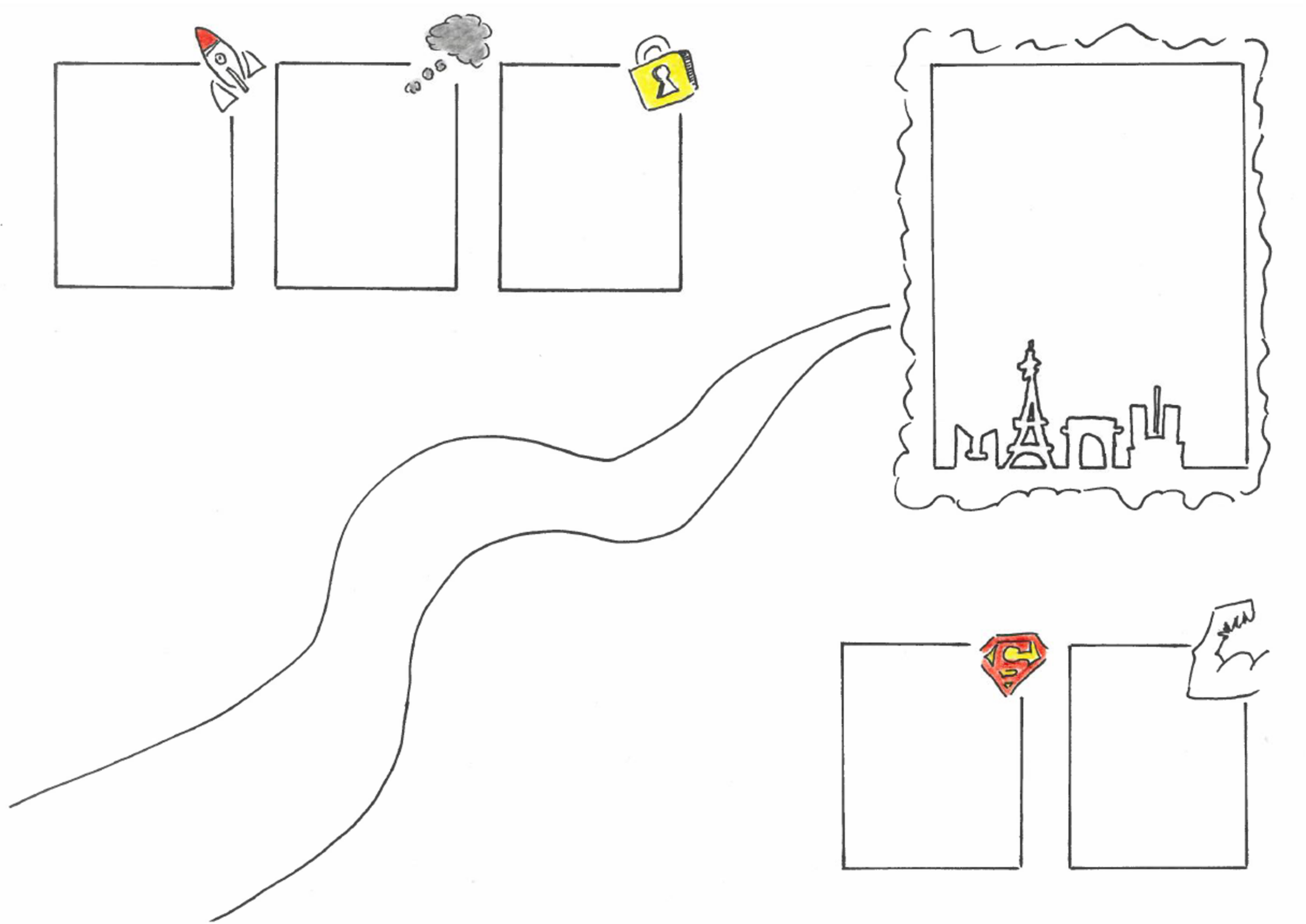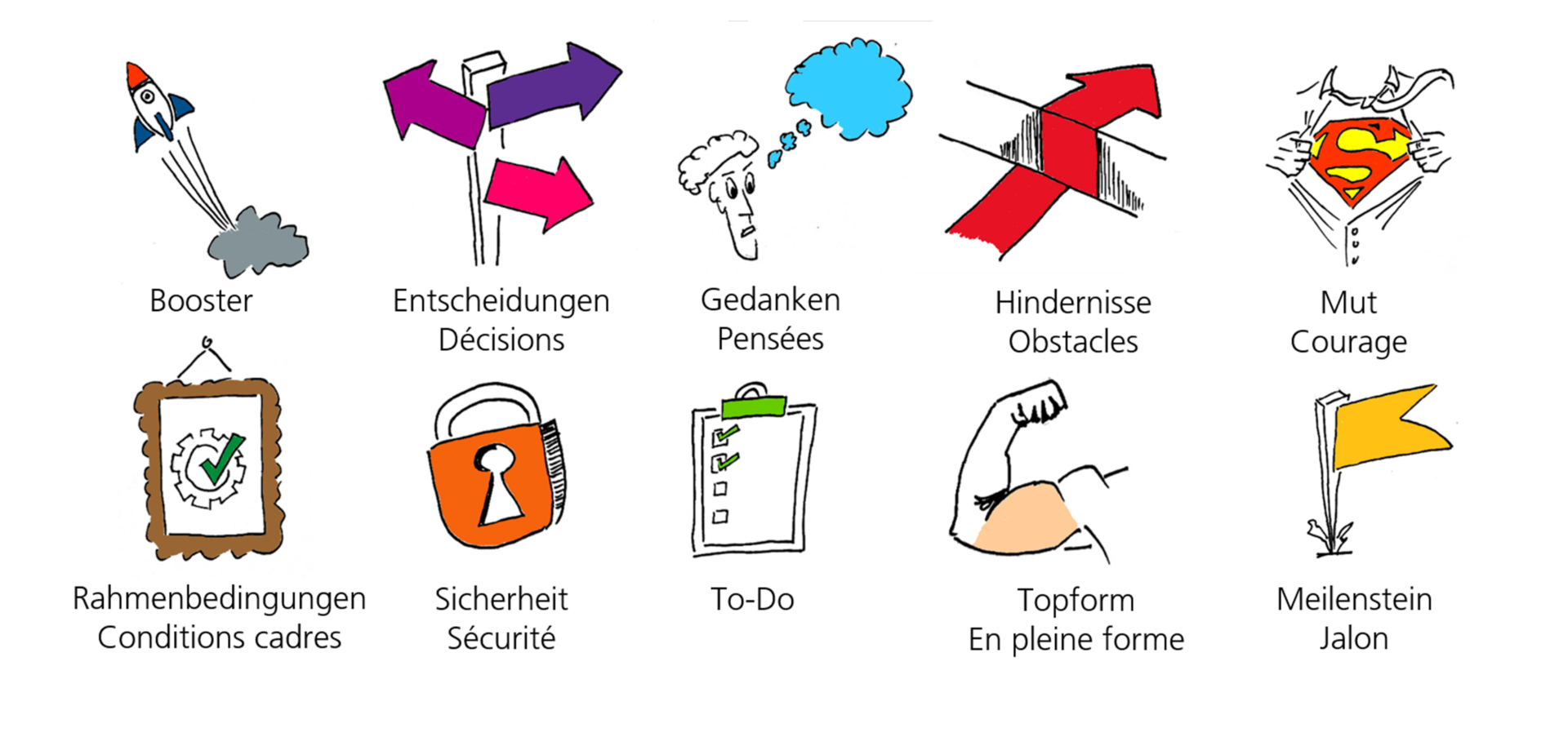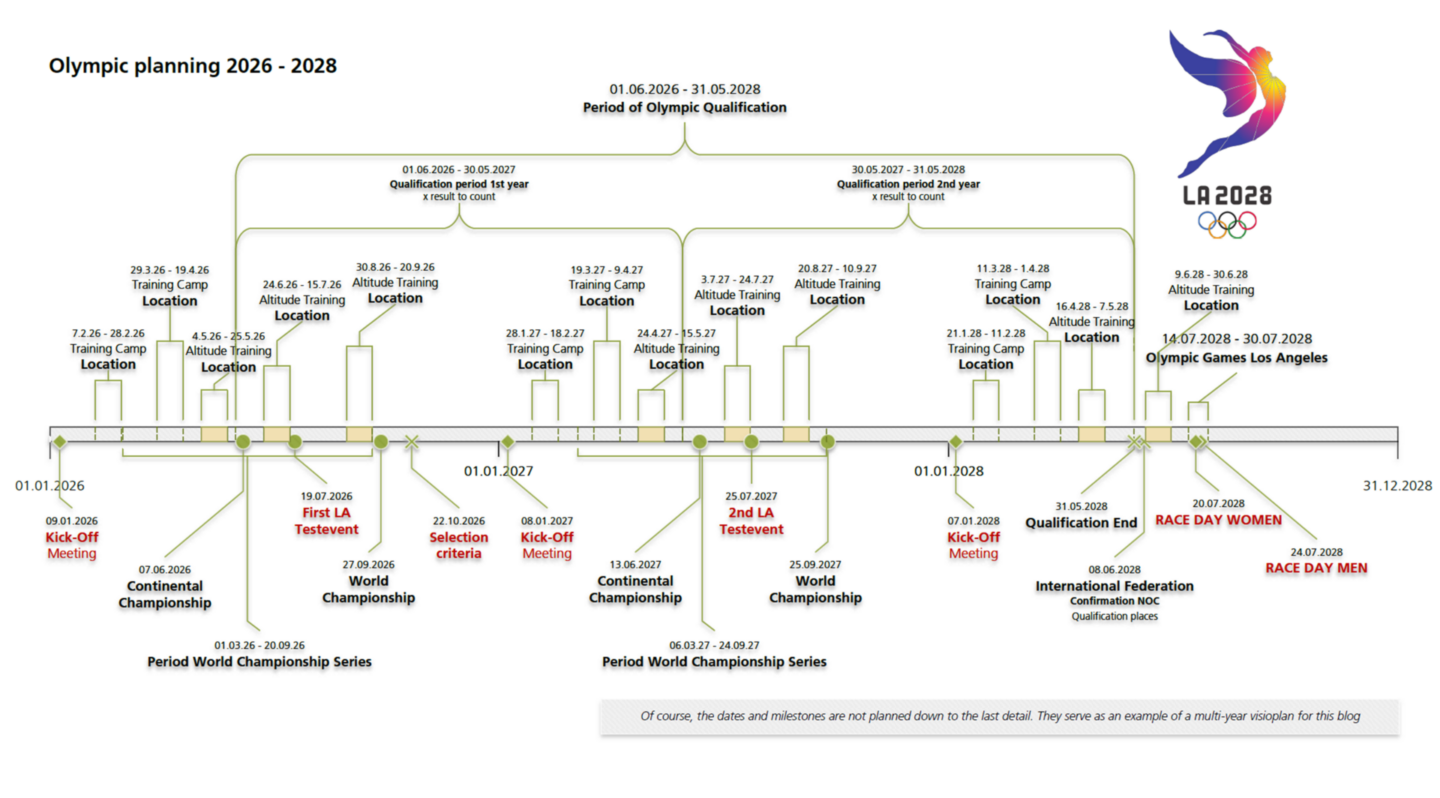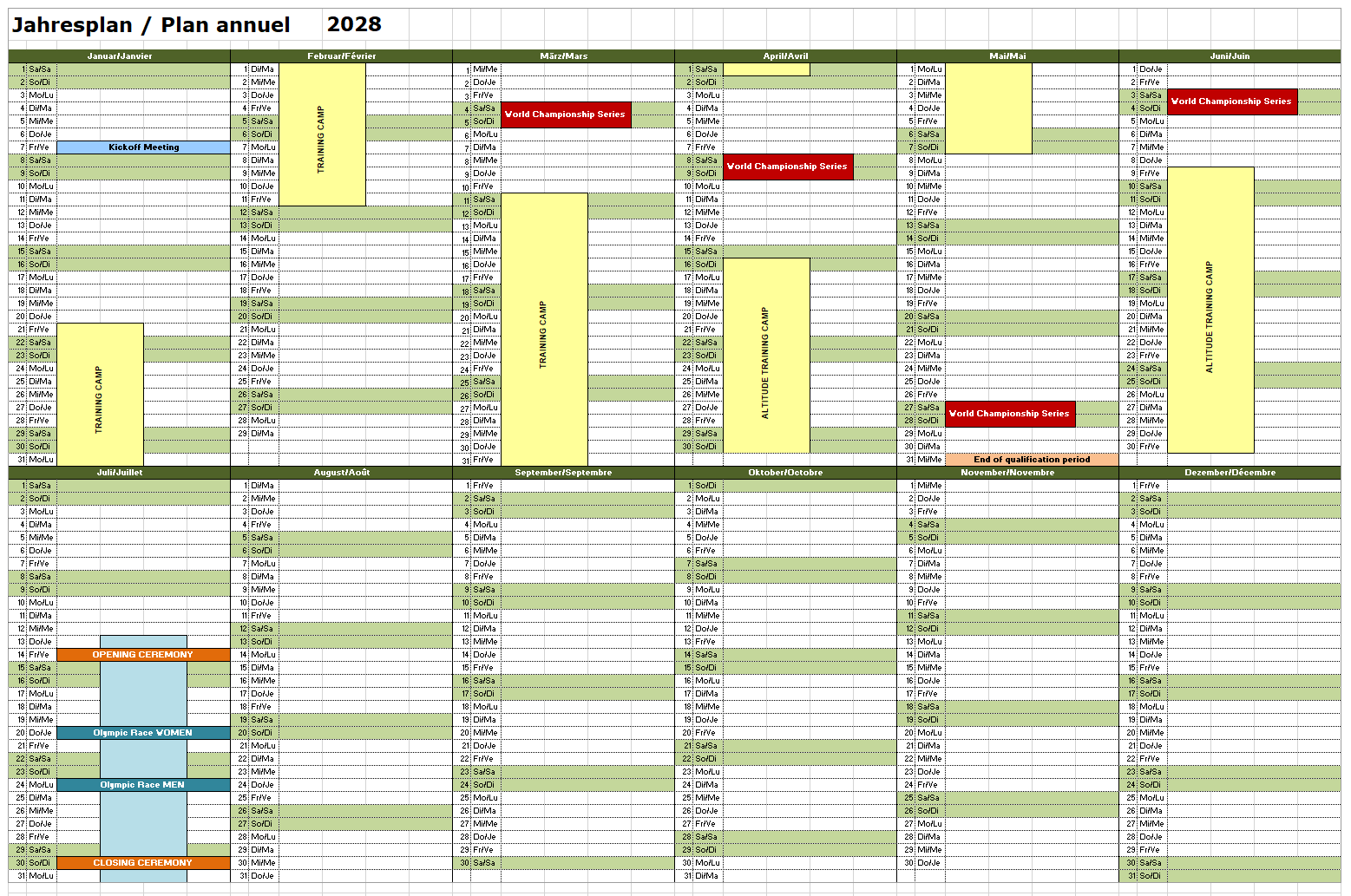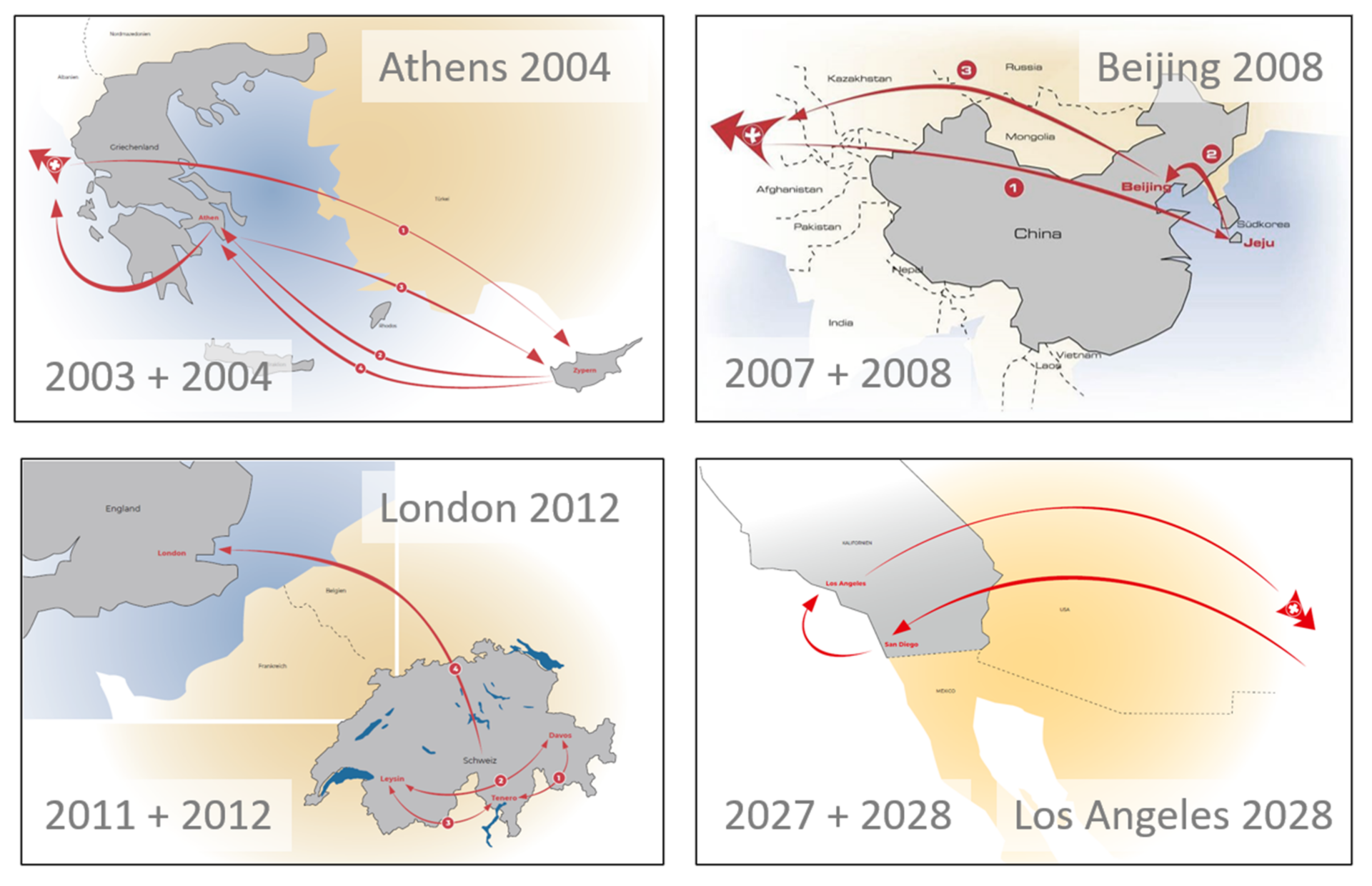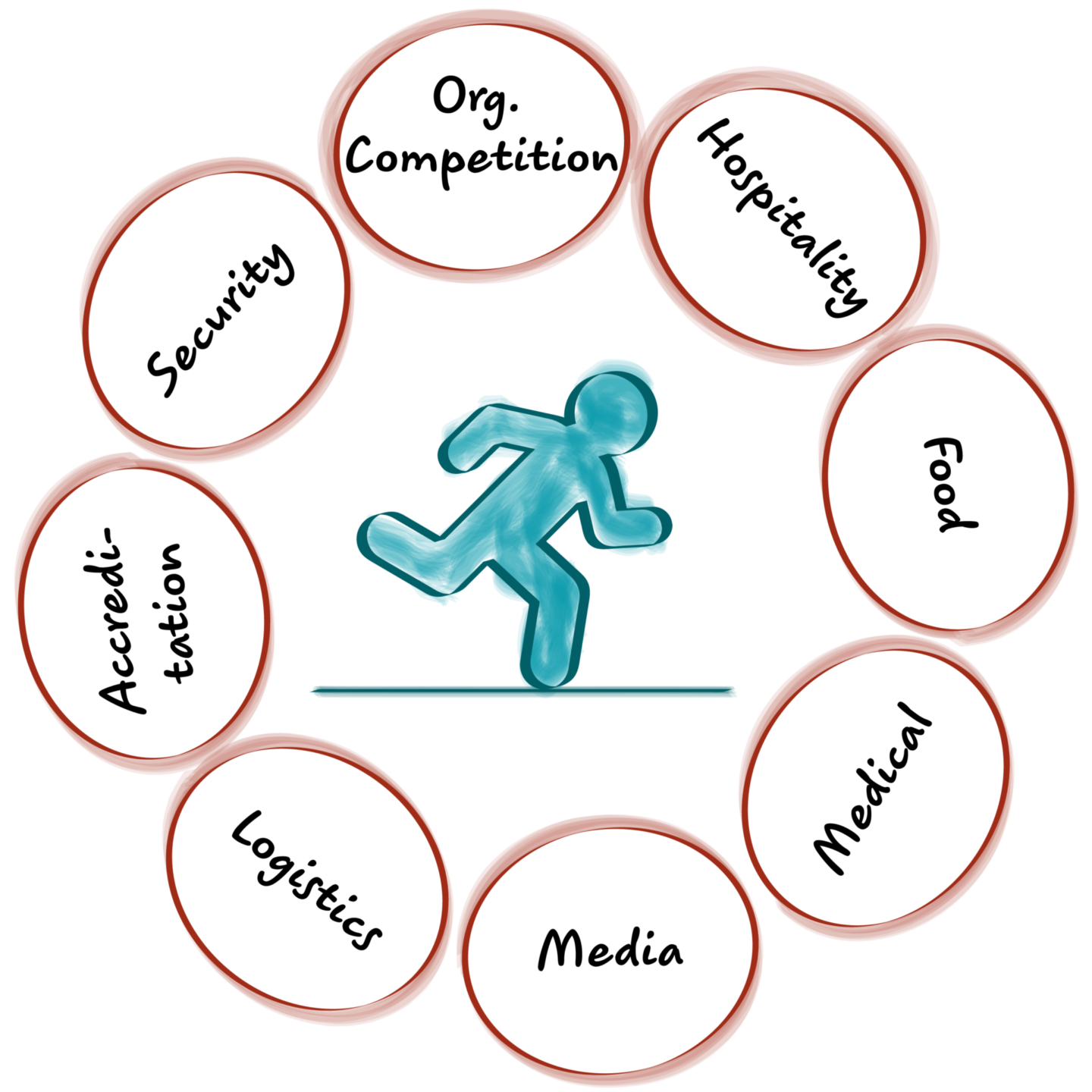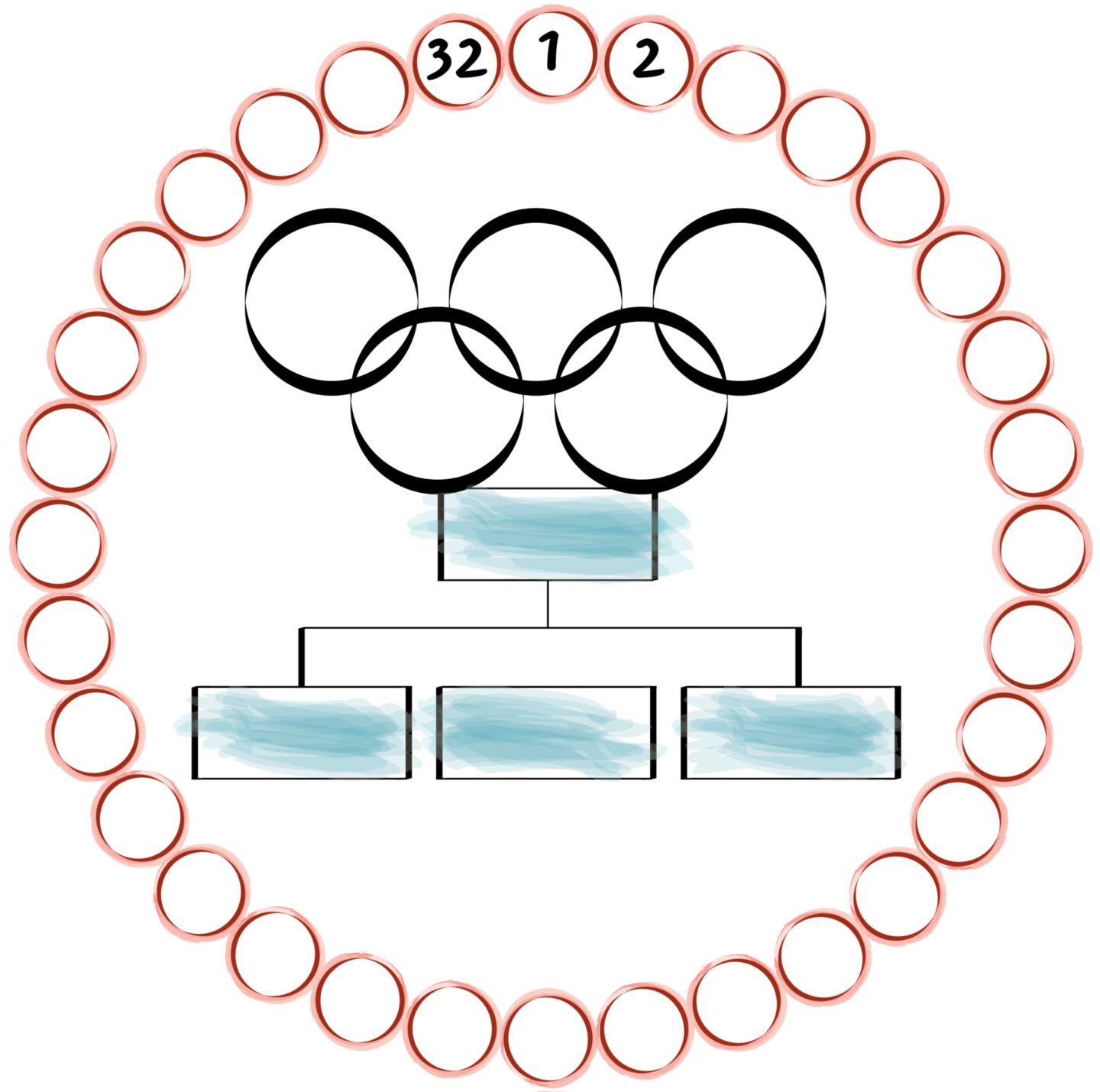Preparing for the Olympic Games – Tools for coaches
Participating in the Olympic Games is a highlight in an athlete’s career. For both the national Olympic association (National Olympic Committees NOCs), and the individual sports federations, the four-year planning cycle is fundamental and determines whether the athletes will be able to perform at their best on the day. In this blog, we outline the key planning stages and instruments for preparing for an Olympic Games, which are also useful when preparing for other major sporting events – true to the motto «good preparation is half the battle».
Iwan Schuwey «It took me two Olympic cycles to be fully prepared for the Olympic Games.»
Author: Iwan Schuwey, responsible for French-speaking coach training, Sports Coach Education Switzerland
Content
The Way to the Olympics / Road to …
Preparing for an Olympic Games requires meticulous planning and a clearly defined training plan that is documented and implemented consistently. This is the only way to have a chance of being successful. Drawing up a ‘Way to the Olympics / Road to the Games’ training plan – or whatever you wish to call it – at the start of a new four-year Olympic cycle is an exciting process that is worth getting involved in.
The four-year Olympic training plan can include support measures, Olympic projects, squad structures, selection paths, development factors, performance requirements and much more. The graphic below illustrates these complex planning stages in a simple form.
Thanks to FTEM Switzerland, sports federations have made significant progress in their long-term planning. This has made a noticeable contribution to raising the level of performance and elite sport by clearly outlining development opportunities and support measures for athletes and identifying potential for improvement. The Olympic training plan builds on the FTEM, highlighting the areas E2 (being internationally successful) and M (dominating the sport), and going into greater Olympic-specific depth in those areas.
The ‘Way to …’ training plan can also contain other areas in which decisions, thoughts, inputs, obstacles, milestones, framework conditions, certainties, courage, etc. are noted and developed. The training plan does not have to be graphically elaborate, but it does have to be designed in such a way that it can be analysed regularly. We have compiled such a training plan with the coaches from the Paris 2024 Olympic Coach Programme (OCP).
The Olympics training plan (Visio)
A multi-year plan, created for example with the Visio visualisation tool, can be a very valuable planning document for a specific competition. It helps to maintain an overview and stay on track. Here is a very compact version of the training plan for the 2028 Olympic Games:
- 2026: Preparations begin
- 2027: Training locations are defined, infrastructure is assured, etc.
- 2028: Olympic Games take place.
This rough training plan may seem unimpressive, but it forms the foundation for all further steps. It is important to constantly review and adapt it to ensure that we are on the right track.
Download
- Olympiaplanung Swiss Triathlon 2010 – 2012 (pdf, German)
The annual plan
A (classic) annual plan is indispensable when preparing for the Olympic Games. It should provide an overview of the key elements, starting with the Games themselves, and take account of the following aspects:
- Olympic Games: The highlight of the year and the focus of all efforts.
- Key competitions: Note down the dates of key competitions and take into account the time in-between.
- Training camps: Plan training camps strategically to achieve optimum results.
- Simultaneous activities: Avoid bottlenecks: Where and when do different activities take place at the same time?
The Excel sheet below for 2028 contains assumed elements for illustrative purposes. It can be customised to suit your needs. The formula in the (download) calendar adjusts automatically when you change the year.
Downloads
- Annual planning template (xls, German)
- Example of the 2012 London Olympics annual plan (pdf, German, French)
- Blog: Training planning and management | mobilesport.ch (German, French, Italian)
The all-important pre-Olympic year
In this section, we focus on the very important pre-Olympic year, the ‘Olympic test year’. The training plan for the year is fixed from the outset. The main competitions and training camps (for example organising an altitude training camp), including a possible Olympic preparation camp, can be planned and tested in this year. In the Olympic year itself, only marginal adjustments should be necessary based on the experience gained in the test year.
The diagrams below show how Swiss Triathlon organised the final months before the Olympic Games in the pre-Olympic year and the Olympic year identically. Preparations for the 2004 Games in Athens took place in Cyprus, for Beijing 2008 on the island of Jeju in South Korea, and for London 2012 in tried and tested training groups and locations such as Leysin, Tenero and Davos. I am convinced that meticulous preparation was a decisive factor in Swiss Triathlon’s successful Olympic campaigns.
For Los Angeles 2028, this means that preparation for the LA 2027 Olympic test event should take place in the region. If an altitude training camp prior to the competition is necessary, Flagstaff (Arizona), Boulder (Colorado) or a similar preparation location could be considered. If altitude training is not an issue, the region around San Diego could be an interesting option – provided, of course, that the local infrastructure is suitable for the sport. It would be ideal if the 2028 Olympic squad could take part in this preparation camp alongside the athletes.
Swiss Triathlon in London
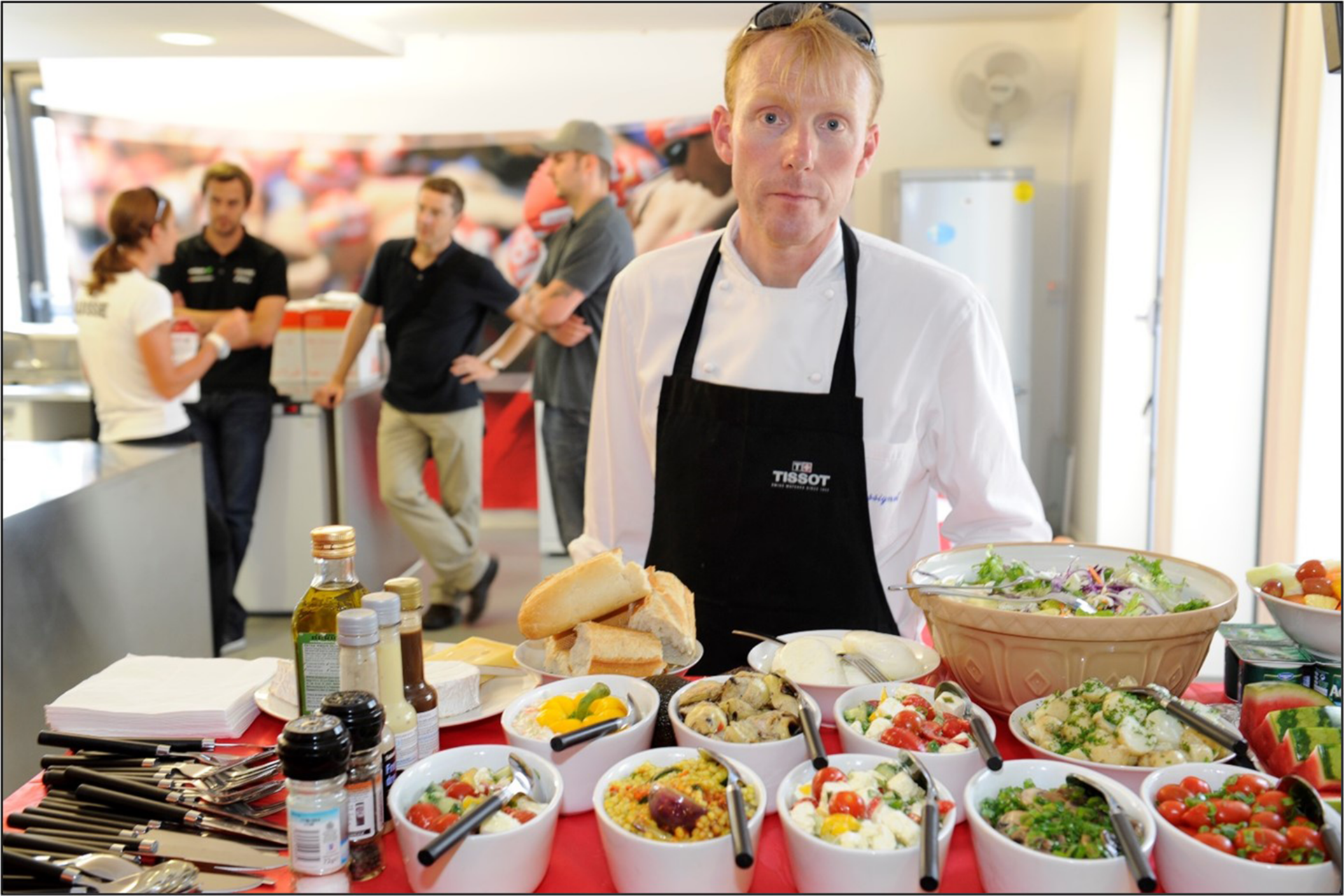
Almost exactly one year to the day before the 2012 Olympic Games in London, a test competition (ITU World Championship Series) took place, in August 2011. The support team consisted of a physiotherapist, doctor, chef, Elite Sports manager and national coach – exactly the same as at the Olympic event one year later. The athletes had known for some time that we would not be attending the opening ceremony in 2012, but would be travelling later and staying in a college with perfect infrastructure close to the start. This had to be tested beforehand.
In the run-up to this test competition, we also organised a press conference at Zurich Airport and a reception with family members, sponsors and association officials at the college itself. In addition, Swiss television reported on the triathlon team. One of the aims of these activities was to simulate the stress of the Olympics in the run-up to the Games.
Download
- Swiss Triathlon’s goals and milestones at London 2012 (German) | Excerpt from Swiss Triathlon’s training plan (png)
Sports science support – Analysis of pre-Olympic competition
At pre-Olympic competitions (i.e. test events on the Olympic course a year before the Games), the level of activity is significantly higher than at ‘standard’ competitions: athletes‘ weights are measured, equipment is installed on bicycles and competition suits, courses are measured with measuring wheels and lasers. These measures are carried out with the support of the sports scientists from Magglingen.
The findings influence our day-to-day training and our Olympic-specific measures. This is supported by FOSPO and Swiss Olympic. The exchange of this knowledge is crucial: mandate coaches, personal trainers and other key people receive all relevant information and are in constant dialogue with us.
Sports science plays a key role in helping us to update our world status analysis, athlete and competition analyses, start list analyses and simulations. However, caution is needed when implementing these findings: sometimes less is more.
Downloads
Special situations (altitude, temperature, time difference, etc.)
What climatic conditions can be expected at the 2028 Olympic Games in Los Angeles? What can be done to minimise the effects of jet lag when travelling? Why should athletes have an annual dental check-up? The infographics from Swiss Olympic will help you prepare for the Olympic Games.
Links
- Infographics, Swiss Olympic Team (Peking) (German, French)
- Infographics, Swiss Olympic Team (Tokyo) (German, French)
More on the subject
- Sports medicine: Dealing with special situations in competitive sport | mobilesport.ch (German, French, Italian)
Mindfulness on the way to the Olympic Games
Planning tools, factsheets, analyses and preparatory measures are undoubtedly very valuable on the road to the Olympics. However, they are only really effective if the people who develop and implement them in the field have a work-life balance. Particular attention should be paid to mindfulness in order to deal with pressure. Athletes and coaches need to have stress management strategies in place, both in and out of the gym.
An optimum balance between training and rest is also crucial. Well-timed peak and taper periods are critical and must be well planned. At the same time, athletes must remain flexible in order to be able to react to unforeseen events.
Jürg Wetzel, who will be working as a psychologist for Swiss Olympic for the tenth time in Paris, summarises the three most important psychological guidelines for coaches who are on site at major events:
Strength in tranquillity
- Coaches should be well prepared and rested, with personal/private matters clarified and organised.
- Structure is important during the event: this includes fixed daily routines, work schedules and transport plans. It is important stick to a routine and not try any experiments!
- After the Games, a structured evaluation that ideally includes an external perspective is important.
Positive thinking
- Since many things are uncertain, there should be an atmosphere of realistic confidence as a positive starting point.
- As role models, coaches can reinforce positivism and a solution-orientated attitude by using their mindset, coaching techniques, communication and demeanour to strengthen athletes‘ resources and promote self-confidence and a sense of achievement.
Take it easy
- Taking part in the Olympic Games is a privilege, not a matter of life and death; well-being and mental freshness help everyone to cope with pressure and nervousness.
- Everyone should fully embrace their role and contribute to the team spirit with a good mood and humour.
- No one should take themself and their performance too seriously; that can reduce a lot of pressure.
«EVERYTHING about the Olympic Games is extreme!»
This is the answer from Peter Haas, Head of Competitive Sports at Swiss Athletics from 2004 to 2018, to the question of what is so extreme about the Olympic Games. Peter will most likely be taking part in his tenth Olympic Games (formerly as an athlete, now as an official) in Paris.
His graphics contain a very interesting comparison between the European/World Championships and the Olympic Games.
At major events such as the European and World Championships, the framework conditions are always familiar and the same. In contrast, the Olympic Games involve far more unknown elements. It is therefore important to prepare for that as well as possible.
Key elements
Obviously not all topics can be covered in this blog; some have only been briefly mentioned. Here is a list of key elements that are crucial for success at the Olympic Games:
- absolute commitment to competitive sport from the association
- clear 4- or 8-year planning (Way to …, Visio, annual training plans)
- elementary fixed points in the Olympic cycle that are constantly being perfected
- close cooperation with BASPO, Swiss Olympic, sport science
- clear selection procedure (athletes) and clear communication (athletes and staff)
- one-to-one simulation in the pre-Olympic year
- energy levels (work-life balance)
- no over-perfection, flexibility
- exchange with people who have Olympic experience

